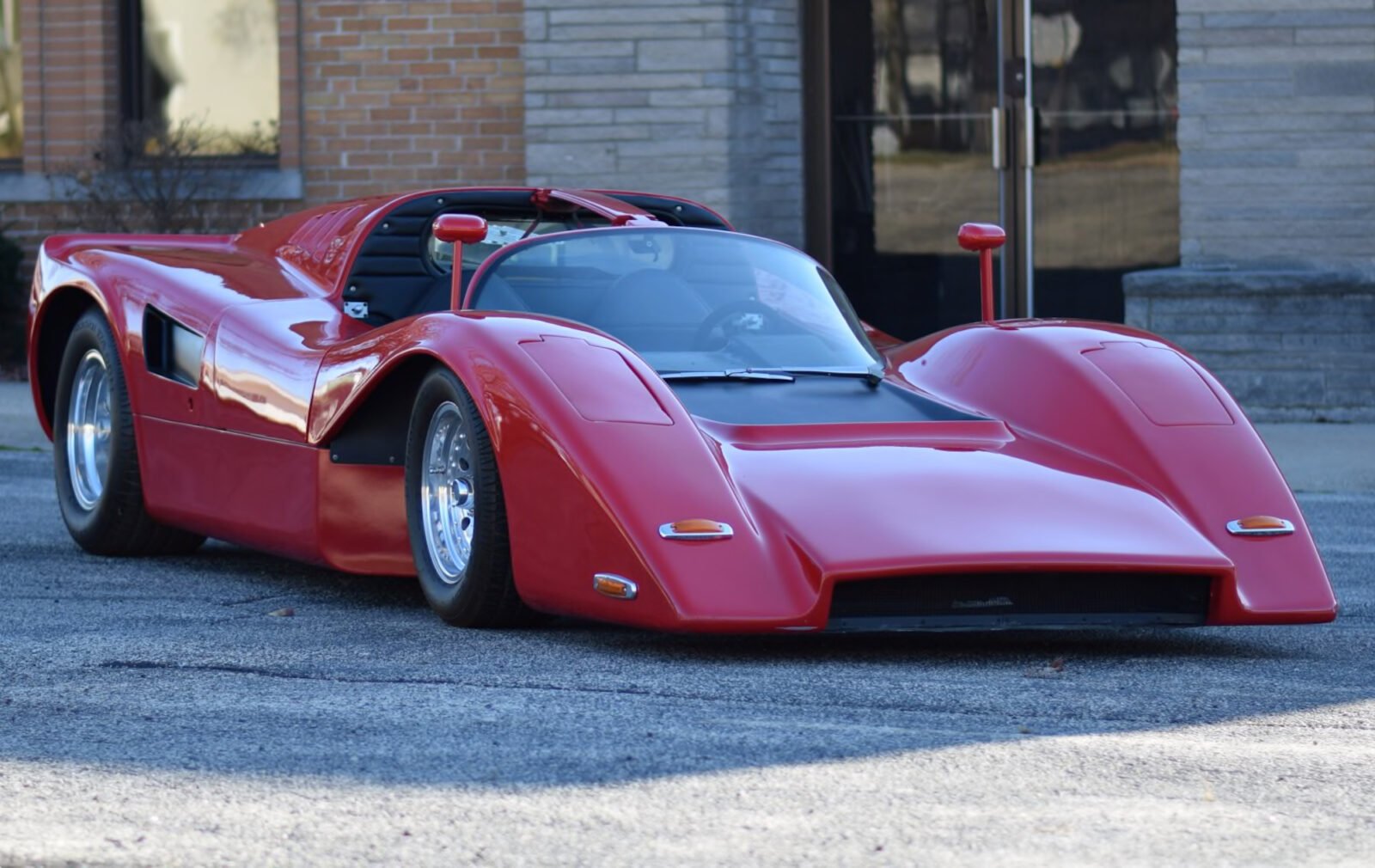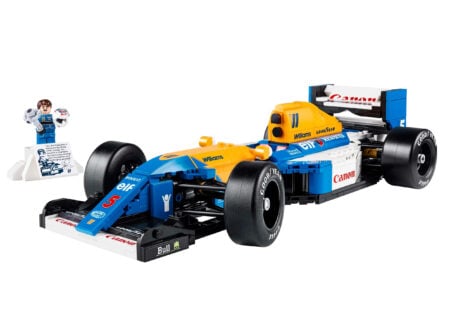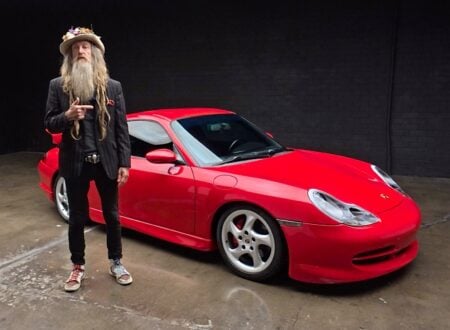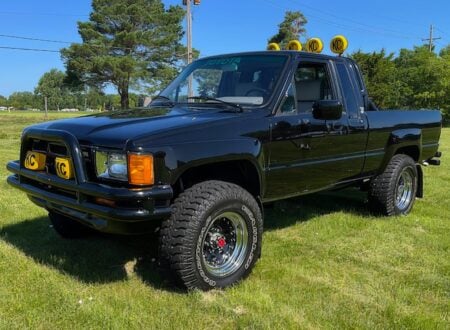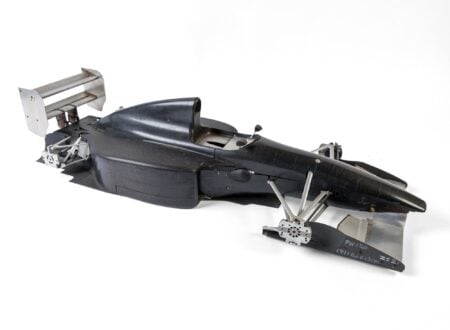The Manta Mirage was developed by brothers Brad and Tim LoVette in Costa Mesa, California and offered for sale from 1974 onwards. It was one of the fastest American supercars of its time.
The Mirage features a steel spaceframe chassis, a mid-mounted V8, independent front and rear suspension, and a curb weight as low as 1,900 lbs (860 kgs). You could opt to buy your Mirage turn-key from the factory or in kit form, and by the time the company ceased operations they had sold almost 1,000 vehicles.
Fast Facts – The Manta Mirage
- The Manta Mirage was developed in the early 1970s, primarily inspired by the race cars that competed in the Can-Am series. This series was known for its minimal restrictions on vehicle design, which led to the creation of some of the most powerful and innovative race cars of the era. The Mirage was essentially developed as a road-legal Can-Am-style car.
- Manta Cars was founded by American brothers Brad and Tim LoVette in Costa Mesa, California. The Mirage would be their first vehicle, it was given a steel spaceframe chassis, a mid-engined layout, independent front and rear suspension, disc brakes on all four corners, and a lightweight fiberglass body.
- Depending on final specification, the Manta Mirage could weigh as little as 1,900 lbs (860 kgs) while turning out well over 400 bhp. This gave the car raw performance that could match or exceed most supercars in production at the time, and it made it one of the fastest American supercars of the era.
- The Mirage you see here was built at the Manta factory in 1976 to a high specification. It’s powered by a small block Chevrolet V8 which sends power to the rear wheels via a 4-speed manual transmission. The car is finished in red gelcoat with a black interior, and it’s now being offered for sale.
Manta Cars and the LoVettes
Manta Cars was a low-volume specialty American automaker founded in 1974 by Brad and Tim LoVette. Truth be told, the two brothers deserve more credit than they get, they built one of the fastest American supercars of the time and shipped almost 1,000 vehicles across various model ranges before the company ceased production in 1986.
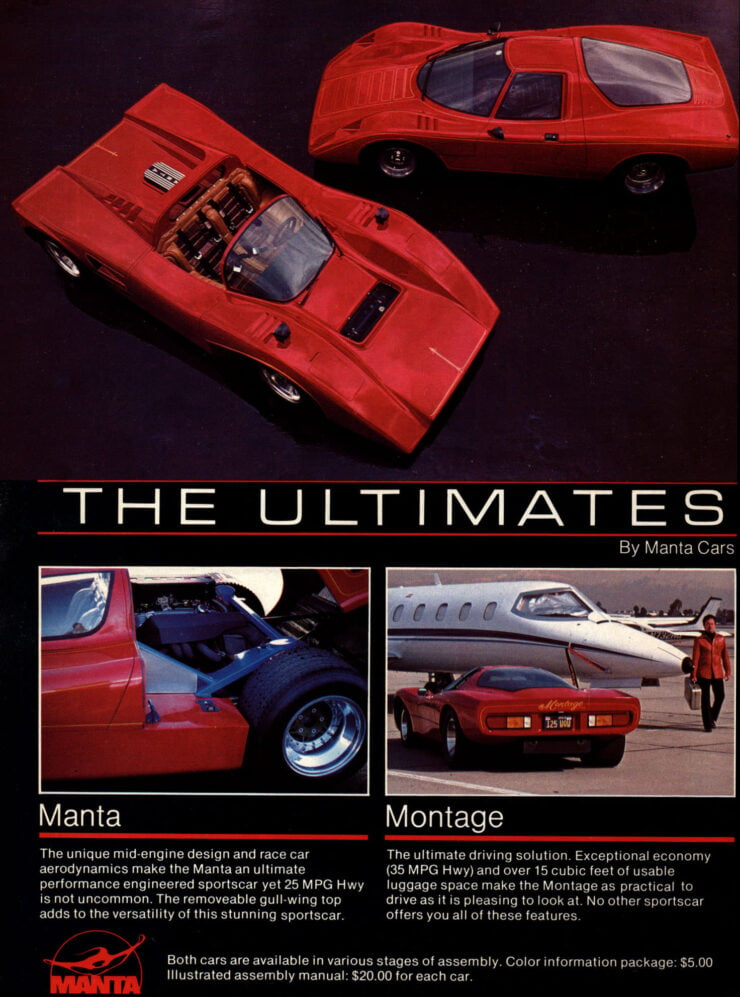

The inspiration for the Manta Mirage was the Can-Am series race cars that had become some of the quickest racers anywhere in the world thanks to the fact that the series had a relaxed rule book. The mid-engined Can-Am cars caused a sensation wherever they raced, and the LoVette brothers wanted to create a road-legal version that anyone could buy.
It’s likely that the LoVettes were inspired by the McLaren M6GT, a closed cockpit version of the earlier McLaren M6A Can-Am car that had been destined to race at the 24 Hours of Le Mans. McLaren planned a limited production run of the M6GT however it never eventuated, only a few were made, two of which were converted for road use. One of those two cars became Bruce McLaren’s own personal road car.
The Manta Mirage would have somewhat similar styling to the M6GT, particularly around the front end, though it wasn’t a replica given the significant number of differences between the two cars.
The Manta Mirage
A tubular steel spaceframe chassis was developed for the Mirage, it was designed to accommodate an American V8 engine in a mid-mounted position behind the driver and passenger. Most cars were fitted with either 327 or 350 cubic inch Chevrolet V8s however some received 454 or 460 cubic inch V8s from Ford.
A number of different transaxles were used to get power from the engine to the rear wheels, most Manta-built cars were given a 4-speed Corvair transaxle which was mated to the engine using a Kelmark adapter.
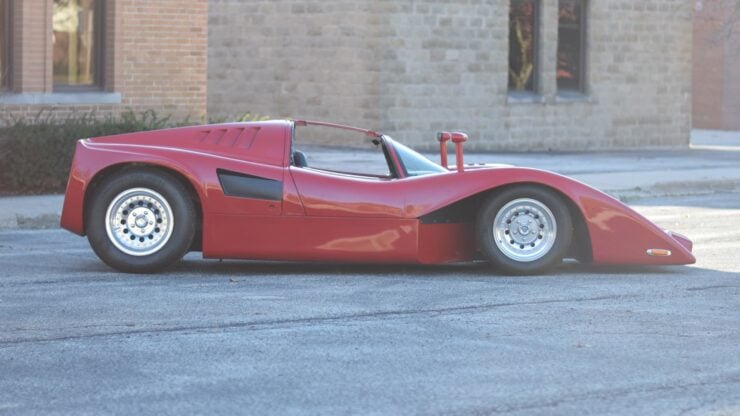

The Mirage was given independent front and rear suspension, four wheel disc brakes, rack and pinion steering, a lightweight fiberglass body, and gullwing-type doors.
Due to the fact that the Mirage could be ordered as a fully-built, turn-key car from Manta or as a kit, there was a wide range in specification and build quality. Manta-built cars are often considered the best, but many homebuilt cars were finished to a very high level, and so they shouldn’t be dismissed out of hand.
The doors of the car are in two parts, as the Mirage is a targa of sorts. The lower half of the door opens forward and the upper half opens upwards like a gullwing. The top center section of roof, and the doors along with it, can all be removed if the owner wants that wind–in-the-hair driving experience.
Thanks to the uniqueness of the Mirage it quickly became a darling of Hollywood, appearing in a slew of films and TV shows including the original 1974 movie Gone In 60 Seconds, the 1983 film Deadline Auto Theft, a custom version appeared in the first season of the 1983 TV show Hardcastle and McCormick, with another car appearing in the 1991 movie Highway To Hell.
It’s not known exactly how many Manta Mirages were built, we do know that Manta would later diversify their model range to include some VW Beetle-based kit cars and some replicas, however they ceased all operations in the mid-1980s.
The 1976 Manta Mirage Shown Here
The car you see in this article is an original factory-built Manta Mirage, made by Brad and Tim LoVette and their workers in 1976. It’s fitted with a 350 cubic inch Chevy small-block V8 and a 4-speed transaxle.
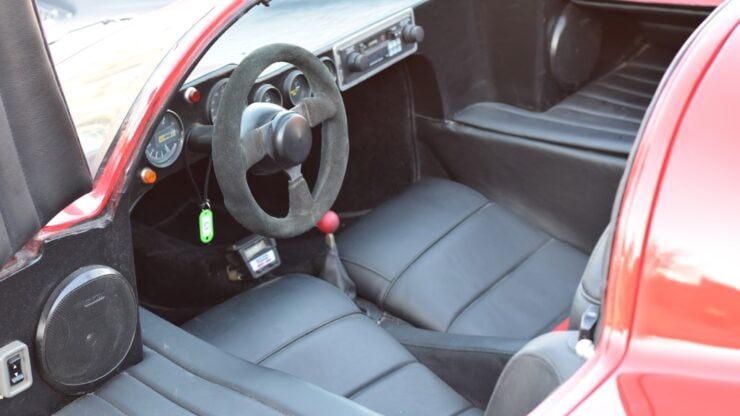

This Manta is finished in a bright red gelcoat over a black interior. It appears to be finished to a very high degree of quality for a low-volume vehicle of this kind, and it even has an AM/FM cassette player installed.
This car is now due to roll across the auction block with Mecum in early January, if you’d like to read more about it or register to bid you can visit the listing here.
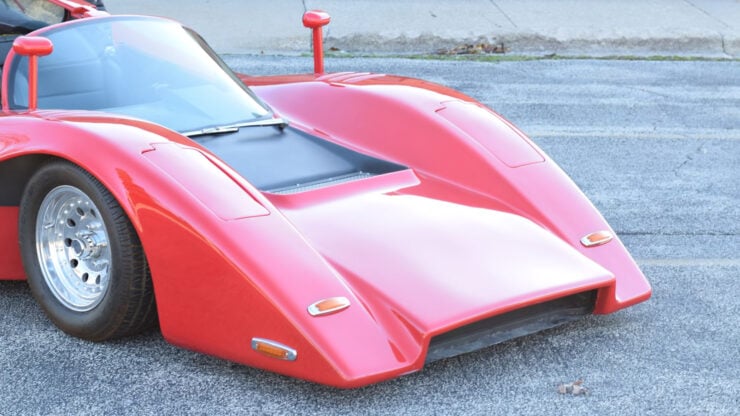
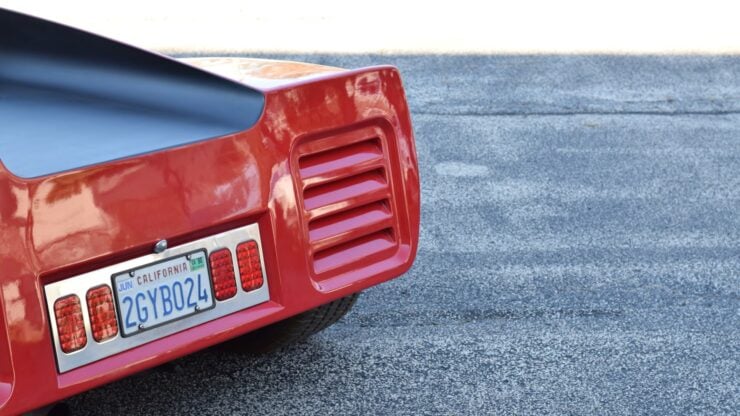
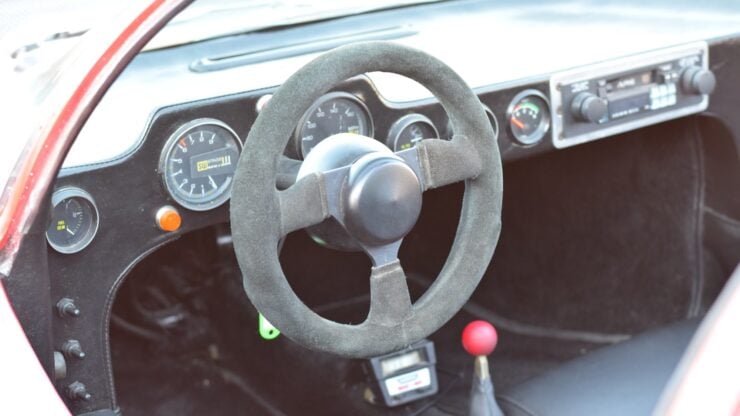
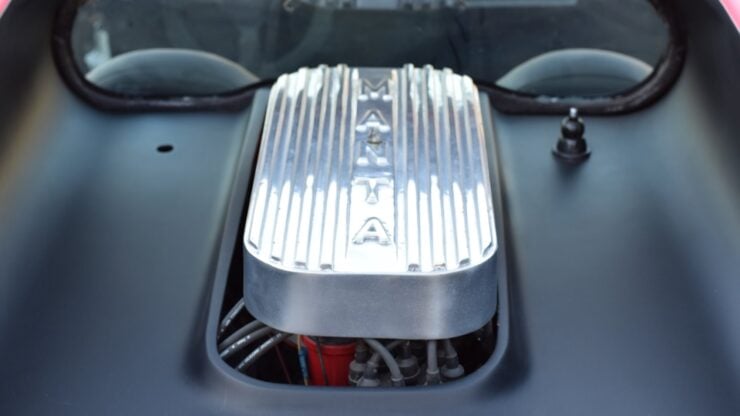
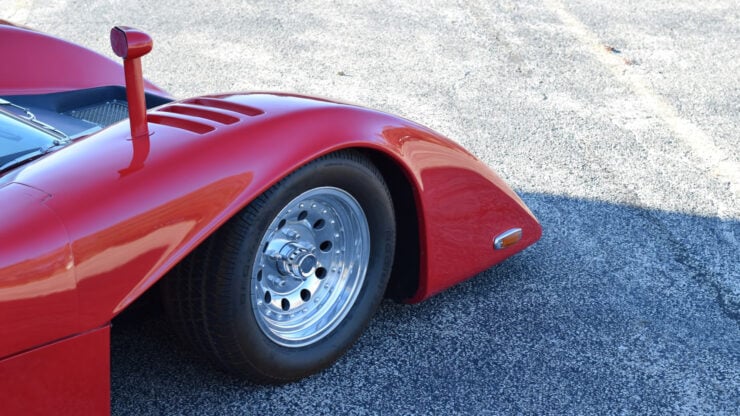
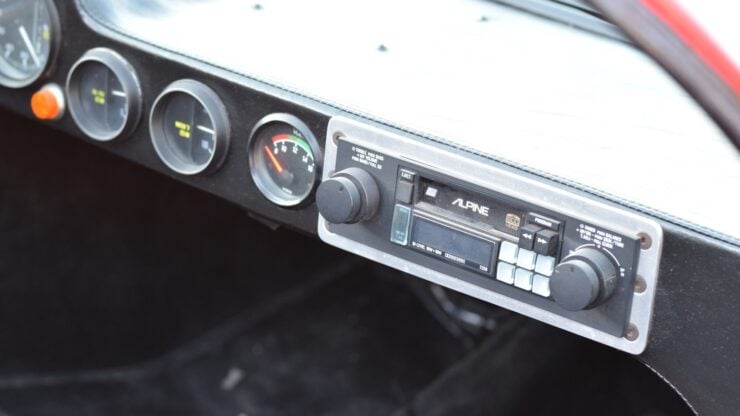
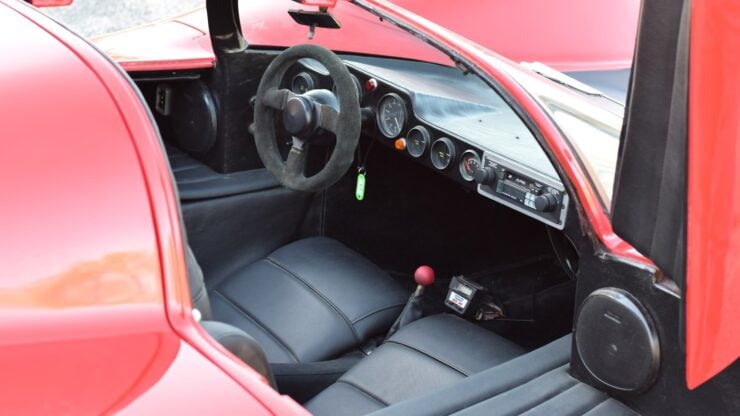
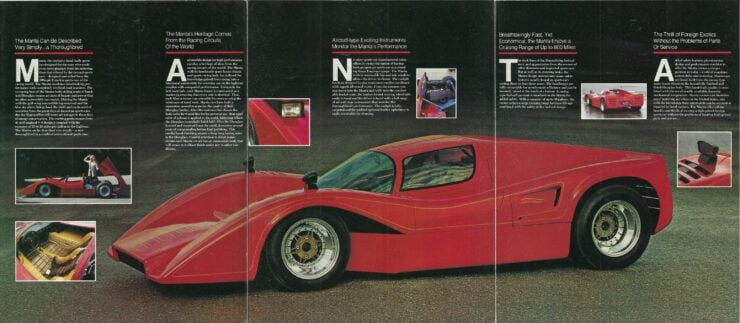
Images courtesy of Mecum

